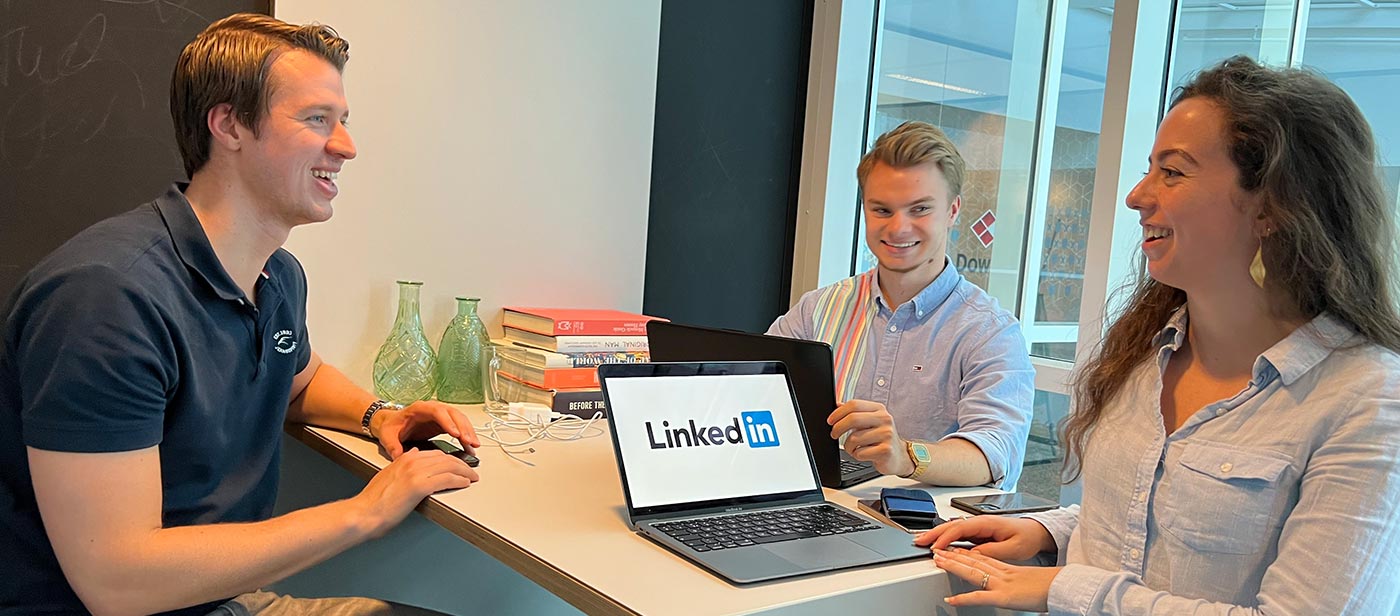Did you know that 70% of companies look through candidates’ social media profiles? Your internet reputation is really important! Welcome to personal branding, where you are the CEO of Yourself, Inc. It’s more than simply cool logos; it’s your professional DNA—values, skills, and reputation all in one amazing package.
Personal branding entails developing a distinct professional identity that distinguishes you. It’s about demonstrating your knowledge and personality in a way that your target audience will understand. Whether you’re a beginner or a seasoned pro, your brand informs the world who you are and what you bring to the table.
A fantastic personal brand isn’t just good to have in today’s job market; it’s your passport to success!
Personal branding helps you advance in your career
Stand out from the crowd
Consider your resume to be lost in a sea of identical resumes. Boring, right? A strong personal brand serves as a neon light in a world of black and white. It gets recruiters to stop scrolling and potential clients to lean in.
Take Sarah, a marketing expert who wasn’t getting anywhere with typical employment apps. She produced amusing YouTube videos about data visualization. Her unusual approach piqued Google’s interest, and bang! She got her dream job. Like Sarah, pick your unique angle and run with it!
Demand higher salaries and better opportunities
Your brand is related to your perceived value. The stronger it is, the higher your salary and opportunities will be.
Meet Tom, a freelance writer who calls himself the “tech explainer for grandmas.” Tom’s rates rose once he specialized in explaining difficult technology for seniors. Customers paid a premium for his particular skills.
Even in traditional positions, a strong brand gives you an advantage in pay negotiations. When you are recognized as an expert, you become a valuable asset for corporations to invest in.
Establish a reputation as an expert
Being the go-to guru takes time, but personal branding might help you get there faster. How? By continually sharing your knowledge.
Begin by determining your area of expertise. What topics can you discuss for hours? Once you’ve figured that out, share your brainpower. Write LinkedIn articles, launch a blog, do YouTube tutorials, or speak at conferences.
The key is consistency. Choose a platform that feels right and begin producing. Don’t stress about being flawless; instead, focus on being useful.
Expand your network and opportunities
A great brand attracts talented individuals and fascinating projects. When you communicate clearly about who you are, you attract people who share your values and possibilities.
But networking is more than just making relationships. Engage with others’ content, provide assistance, and show real interest in them. Look for ways to contribute value by sharing articles, making introductions, or offering your skills.
Real-world examples of personal brands
- Gary Vaynerchuk: Wine guy turned social media mogul. Built his empire on consistent content, infectious energy, and zero filter.
- Dr. Brené Brown: Researcher who branded vulnerability as a strength. TED talks, bestsellers, and Netflix specials followed.
- Neil Patel: SEO wizard who built an empire helping others succeed online. His brand screams “approachable expert.”
These folks crushed it in different fields, but the common thread? Authentic brands showcasing their unique superpowers.
How to build your personal brand
Below is a step-by-step checklist for you:
- Identify Your Unique Value Proposition: What is your secret sauce? Perhaps you are the Excel ninja or the conflict resolution queen. Own it!
- Define Your Target Audience: Who needs your awesomeness? Get specific. “Everyone” is not the audience.
- Craft Your Brand Message: Tweet about your professional excellence.
- Build Your Online Presence:
- LinkedIn is your new best friend. Optimize that profile!
- Consider a personal website as your digital home base.
- Choose 1-2 social media networks where your audience hangs out.
- Create and Share Valuable Content: Choose your medium (blog, vlog, podcast) and start creating! Consistency is essential.
- Engage With Your Network: Don’t be a passive liker. Comment, give views, and initiate discussions.
Unleash your career superpower
Your personal brand is your career superpower. It opens doors, boosts your value, and lets you shape your professional story. So, what are you waiting for? Start building that brand today! Remember, you’ve got something unique to offer the world. Now go show ’em what you’ve got!
If you need assistance with building your brand, please don’t hesitate to contact us!
Frequently Asked Questions
How long does it take to develop a personal brand?
This is a marathon, not a sprint. Expect to see meaningful traction within 6-12 months. But hey, Rome was not built in a day!
What if I am not comfortable with self-promotion?
Concentrate on assisting others. Share your knowledge and provide help. It is not boasting if you are truly offering value.
Isn’t personal branding only for extroverts?
Nope! Introverts may excel by providing insightful material and making one-on-one interactions. Play to your strengths.
How can I sustain my own brand over time?
Stay constant, adapt to industry changes, and never stop learning. Your brand should develop with you.
What are some of the most prevalent mistakes to avoid in personal branding?
Being inauthentic, sending conflicting messages, ignoring your online presence, or attempting to satisfy everyone.

